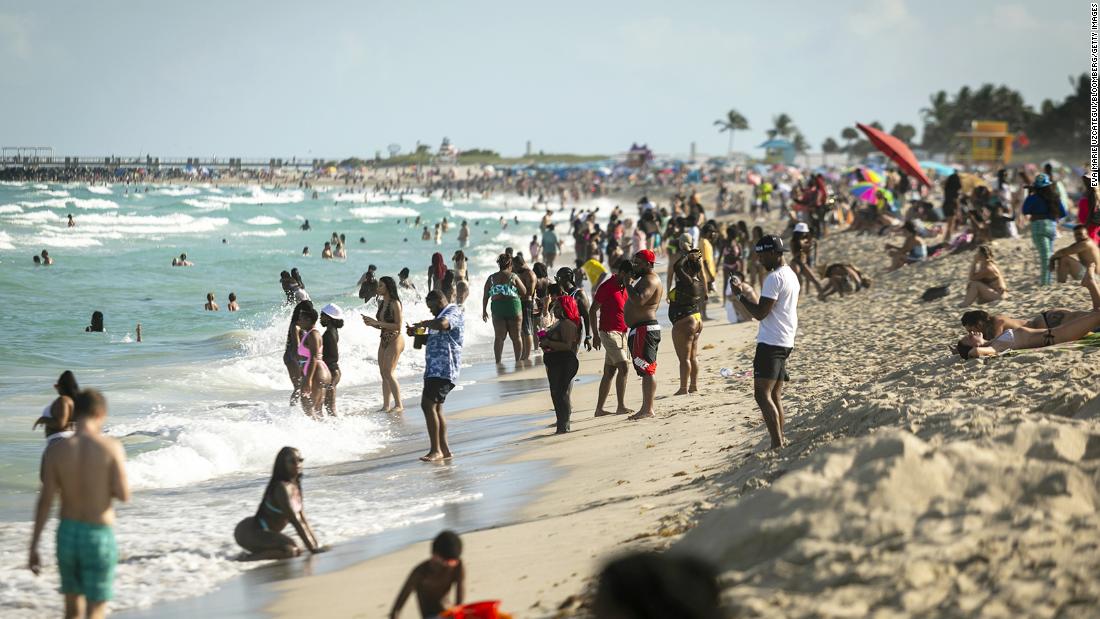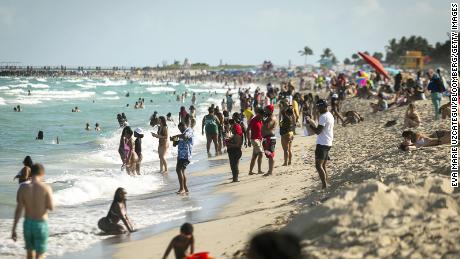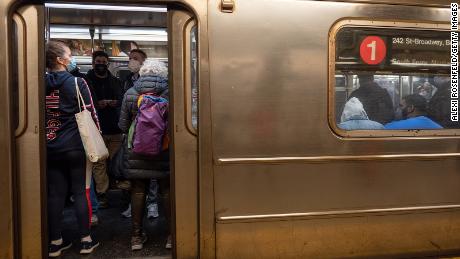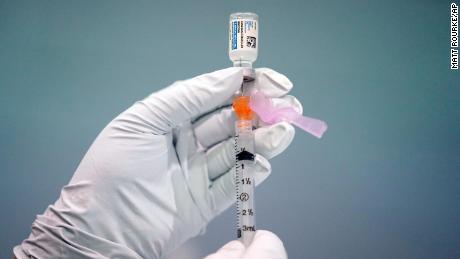Thousands of cases of the B.1.1.7 variant have been reported across the US, and experts fear the strain may fuel another surge as states race to vaccinate residents
“We’ve got a high proportion of variants, and that means coronavirus spreads faster,” Michigan Gov. Gretchen Whitmer told CNN on Wednesday. “These are much more contagious and we’re seeing that whether it is at youth sports or it is the reengagement of some of our restaurants.”
New Jersey officials also noted the B.1.1.7 variant as they reported a rise in cases and hospitalizations and warned the numbers could stay high into the summer.
“It is believed that the uptick in cases is due primarily to more contagious variants, for example B.117, the UK variant, coupled with less cautious behaviors,” state health commissioner Judy Persichilli said Wednesday.
New hospitalizations have increased 28% over the past two weeks to more than 2,300 residents, Persichilli said. And between the first and last weeks of March, there was a 31% and 48% increase in the number of hospitalizations among the 20-29 and 40-49 age groups, respectively. Meanwhile older residents have only seen single-digit percent increases, she added.
In Pennsylvania, the University of Pittsburgh is implementing a shelter-in-place period in response to a rise in cases among students and concerns about the presence of the B.1.1.7 variant on campus and in the surrounding area.
“Of significant concern is that the increase in positive cases since the end of last week is now among our residence hall students,” an official university email said.
Fauci: ‘Hang in there a bit longer’
The good news: The vaccines that are being administered across the US appear to protect people well against the B.1.1.7 variant.
But only 16.4% of Americans have been fully vaccinated and a big part of the population remains vulnerable to the virus.
“Were vaccinating about three million people a day. Every day that goes by we get closer and closer to a greater degree of protection. So now is just not the time to pull back and declare premature victory,” Dr. Anthony Fauci told CNN on Wednesday.
“Hang in there a bit longer,” he said. “Just hang on, continue to do the public health measures and then we can pull back later, when we get a greater degree of protection from the vaccines.”
But governors and local officials have continued to announce eased restrictions, with several lifting mask mandates.
Arkansas Gov. Asa Hutchinson announced Tuesday he was lifting a statewide mask mandate and Alabama Gov. Kay Ivey will also move ahead with her plan to end the state’s mask mandate next week, a spokesperson for the governor told CNN.
Millions more Americans becoming eligible for vaccine
Pfizer’s Covid-19 vaccine is the only one available for use by people who are 16 and older, while the Moderna and Johnson & Johnson vaccines are restricted to people 18 and older.
Kentucky Gov. Andy Beshear announced Wednesday everyone 16 and older will be eligible for a vaccine starting Monday.
The change was made to comply with FEMA vaccination site rules, as well as to accommodate college students who don’t live in the state and people who live with multiple others that might not have proof of residence, state health commissioner Dr. Kristina Box said.
“It’s our preference that individuals who live in Indiana, work in Indiana, are the ones that come over and get vaccinated here because we do get allocated vaccines based on our population, but what we want to do is remove any barriers,” Box said.
Nursing homes see 96% decline in new cases
But already, vaccines are making a difference.
Nursing homes saw a 96% decline in new Covid-19 cases since vaccines started rolling out in December, according to an analysis from the American Health Care Association and the National Center for Assisted Living (AHCA/NCAL).
By March 7, the country’s nursing homes saw the lowest number of weekly Covid-19 cases and deaths since Centers for Medicare & Medicaid Services started tracking them, according to the report.
And by that same day, virus-related deaths in nursing homes were down 91% since December.
“This trend shows that when long-term care is prioritized, as with the national vaccine rollout, we can protect our vulnerable elderly population,” Parkinson added.
CNN’s Naomi Thomas, Jen Christensen, Anjali Huynh, Alec Snyder, Rebekah Riess, Ganesh Setty and Jacqueline Howard contributed to this report.
![]()










